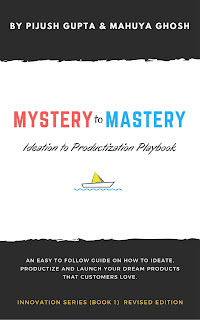The China Twist is the story of how two very young and enterprising Wharton MBA graduates took the bold decision of opening Auntie Anne’s Pretzels chain of snack stores in China. This book is not so much about opening stores in China as their story of keeping it operating in hostile conditions which included local labor laws, health certifications, company registrations and the culture itself.
Asia is now one of the fastest growing markets for American fast food chains and all the brands who are trying to find a place there are racking their brains to come up with new dishes to please local tastes. Wen-Szu Lin and his partner faced the same dilemma as McDonald’s faced when they came to India. With a population over 1 billion no international brand can ignore the fact that India is a lucrative market for them. In the era of global villages, even hardcore international firms strive to bring their own cultural flavor to a country.
The fact that McDonald’s failed in its first stint as they forgot to take out the ham in the hamburger when they came to India is a case study in itself. They ignored India's cultural aversion to beef and pork and later had to tweak their offering and now has some of the most local menu listings like McAloo Ticki (a burger with patty made out of potatoes, peas, and spices) and Maharaja Mac. Global fast-food businesses now come up with hybrid foods that folks back home don't hear about. This is just an example of how big brands can fail if they do not adapt to local settings and that’s what The China Twist is all about. Cultural issues were just one of the problems Wen-Szu Lin faced when he won his bid for exclusive China Master Franchise rights of Auntie Anne’s Pretzels.
The China Twist outlines the challenges that Wen-Szu Lin and his partner faced in China and the lessons learnt throughout their journey which ended with folding up of the chain. The story is interesting but exposes the hard reality of the hardships an alien product faces in a local setting. The book is entertaining in the true sense of the word as the authors take us through a labyrinth of cultural and bureaucratic obstacles. Marketing strategies, cultural sensitivity, bureaucratic stonewalling, labor laws; everything gets a new definition in the process of setting up the chains. I would term this book not as "how not to do business in China" but "how to do business in China".
There are so many case studies in this area where evidence suggests that utilizing both localization and globalization marketing strategies can make these fast food chains treat the world as one market but at the same time marketers should take up a sensitive approach towards local culture, labor laws, social and religious slant. The China Twist so correctly preaches that being sensitive and informed inevitably impacts the business performance positively. The China Twist is a case study with a personal touch and a heart. Go read it!
Disclosure: I was provided the e-book version of the book by the Author.




 Wednesday, April 17, 2013
Wednesday, April 17, 2013
 Pigtale
Pigtale







